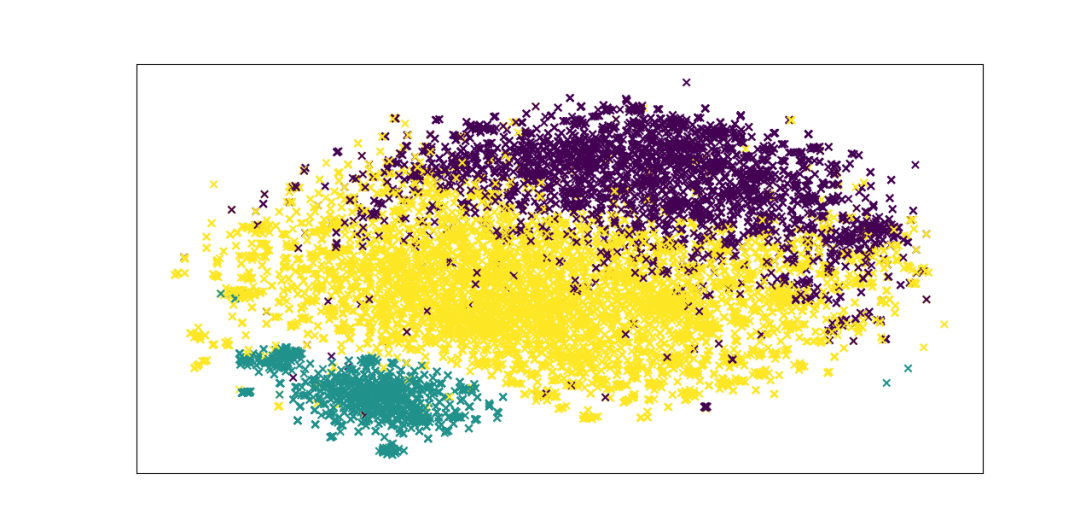 PDF(1746 KB)
PDF(1746 KB)


Technology Topic Mining and Trend Analysis from the Perspective of Industrial Chain Combined with K-Means and LDA——Taking Virtual Reality Technology as an Example
Chen Ling, Lin Ping, Duan Yaoqing
Knowledge Management Forum ›› 2020, Vol. 5 ›› Issue (3) : 135-146.
 PDF(1746 KB)
PDF(1746 KB)
 PDF(1746 KB)
PDF(1746 KB)
Technology Topic Mining and Trend Analysis from the Perspective of Industrial Chain Combined with K-Means and LDA——Taking Virtual Reality Technology as an Example
 ,
,
 ,
,

[Purpose/significance] From the perspective of industry chain, this paper takes virtual reality technology as an example, constructs VR patent industry chain corpus, and explores the technical theme, research and development hotspot and future development trend of China VR patent. [Method/process] First of all, this paper used Python to crawl the patent text in VR field and got effective corpus through data cleaning. Secondly, combining IPC classification number and K-means clustering algorithm, this paper constructed and validates VR patent industry chain. In addition, based on TF-IDF algorithm and LDA theme model, we identified the core technology themes and their comprehensive strength, technology research and development hotspots and future trends of China VR patents from the perspective of production chain. [Result/Conclusion] At present, the proportion of patents in each link of China VR industry chain is unbalanced. The upstream link is the most popular, followed by the downstream link, and the weakest link is the midstream link. In terms of theme mining, the upstream hot spot is software development, the midstream hot spot is film and television production, and the downstream hot spot is medical, educational and entertainment applications. In terms of future trends, the upstream of the industrial chain will be dominated by technologies such as electronic digital data processing, optical components, image communication, etc., the midstream will be dominated by technologies such as vehicle components, power devices, damping devices, etc., and the downstream will be dominated by technologies such as indoor games, medical diagnosis, identification, etc..

K-means clustering algorithm / LDA theme model / technology theme evolution / text mining / VR
| [1] |
杨超,朱东华,汪雪锋,等.专利技术主题分析:基于SAO结构的LDA主题模型方法[J].图书情报工作,2017,61(3):86-96.
|
| [2] |
李姝影,张鑫,许轶,等.核心专利集筛选及专利技术主题识别影响[J].情报学报,2019,38(1):17-24.
|
| [3] |
陈伟,林超然,李金秋,等.基于LDA-HMM的专利技术主题演化趋势分析——以船用柴油机技术为例[J].情报学报,2018(7):732-741.
|
| [4] |
张婷婷.网络综合布线实验室虚拟现实技术下的设计与研究[J].电子测试,2019(3):106-107.
|
| [5] |
孙柏林.区块链+虚拟技术:仿真技术的新动向[J].计算机仿真,2019,36(1):8-13,35.
|
| [6] |
周永伟.岩石工程虚拟现实系统的建立及应用[J].山西建筑,2019,45(2):77-79.
|
| [7] |
谢敬伟.分布式虚拟现实交互仿真系统研究[D].杭州:浙江大学,2017.
|
| [8] |
PAN X, HAMILTON A F D C. Why and how to use virtual reality to study human social interaction: the challenges of exploring a new research landscape[J].British journal of psychology,2018:395-417.
|
| [9] |
刘子腾.面向虚拟人体解剖模型的交互式立体显示方法研究[D].哈尔滨:哈尔滨工业大学,2017.
|
| [10] |
李发达.基于多传感器的交通控制硬件在环仿真技术研究与应用[D].北京:北京工业大学,2017.
|
| [11] |
周雪,李飒.基于真实感图形生成技术的三维偶动画创作探索[J].中国教育技术装备,2017(16):43-44.
|
| [12] |
许兵.基于虚拟现实设备的典型飞机机翼装配仿真[D].沈阳:沈阳航空航天大学,2017.
|
| [13] |
阎丽,胡丹丹,阎春元,等.基于感知觉学习的儿童视觉及智能虚拟现实数据库系统对弱视治疗效果的研究[J].临床医学工程,2006(2):32-33.
|
| [14] |
周哲泓, 薛锦云, 黄捷文. 虚拟现实软件系统开发方法研究[J]. 计算机工程与科学, 2019,41 (11):1968-1975.
|
| [15] |
申闫春,王锐,郭富荣,等.基于并行渲染的虚拟现实开发平台设计与实现[J].计算机仿真,2012, 29(11):24-27.
|
| [16] |
刘园.VR技术在教育领域的研究与应用[J].电脑知识与技术,2016,12(16):207-208.
|
| [17] |
BAÑOS R M, GUILLEN V, QUERO S, et al. A virtual reality system for the treatment of stress-related disorders: a preliminary analysis of efficacy compared to a standard cognitive behavioral program[J]. International journal of human-computer studies,2011,69(9):602-613.
|
| [18] |
陆颖隽,程磊.基于虚拟现实技术的图书馆信息资源建设与服务创新研究——以CADAL为例[J].图书与情报,2017(4):8-12.
|
| [19] |
丁铮.增强现实和虚拟现实在博物馆的应用[J].信息与电脑(理论版),2017(24):47-50.
|
| [20] |
胡阿沛,张静,雷孝平,等.基于文本挖掘的专利技术主题分析研究综述[J].情报杂志,2013(12):88-92.
|
| [21] |
张彬,陈永翀,张艳萍,等.锂浆料电池国际专利技术分析[J].储能科学与技术,2017(5):1000-1007.
|
| [22] |
隗玲,许海云,刘春江,等.技术领域主题发现研究——以基因工程疫苗领域为例[J].数字图书馆论坛, 2017(01):39-47.
|
| [23] |
张杰,刘美佳,翟东升.基于专利共词分析的RFID领域技术主题研究[J].科技管理研究,2013,33(10):129- 132+140.
|
| [24] |
林广杰.基于频繁项集的海量文本聚类研究[D].北京:北京邮电大学,2015.
|
| [25] |
丁麒,庄志画,刘东丹.基于文本数据挖掘技术的95598业务工单主题分析应用[J].电力需求侧管理,2016(A01):55-57.
|
| [26] |
王镠富,胡等金.基于产业链的专利丛林测量与对策研究[J].情报理论与实践,2019,42(4):101-106.
|
| [27] |
张杰,赵君博,翟东升,等.基于主题模型的微藻生物燃料产业链专利技术分析[J].数据分析与知识发现,2019,3(2):52-64.
|
| [28] |
吴红,伊惠芳,马永新,等.面向专利技术主题分析的WI—LDA模型研究[J].图书情报工作,2018(17):68-74.
|
| [29] |
张超.基于专利数据挖掘的技术趋势分析方法[D].大连:大连理工大学,2014.
|
| [30] |
林志坚,谌凯,潘婷婷,等.国内外虚拟现实技术专利分析研究[J].竞争情报,2018:24-32.
|
| [31] |
黄立业,赵辉,王坚,等.基于专利分析的产业竞争情报分析框架研究[J].情报科学,2015(4):59-63.
|
| [32] |
王静宇,刘颖琦,KOKKO A .基于专利信息的中国新能源汽车产业技术创新研究[J].情报杂志,2016,35(1): 36-42.
|
| [33] |
于申,杨振磊.全球人工智能产业链创新发展态势研究[J].天津经济,2019(5):13-18.
|
| [34] |
方思,李国秋.全球无人驾驶汽车专利分析——从产业链和技术链的二维角度[J].竞争情报,2016,12(5):27-36.
|
陈 玲:数据收集与分析,论文起草与修改,论文最终版本修订;
林 平:数据分析;
段尧清:提出整体研究思路与框架,修改论文。
/
| 〈 |
|
〉 |